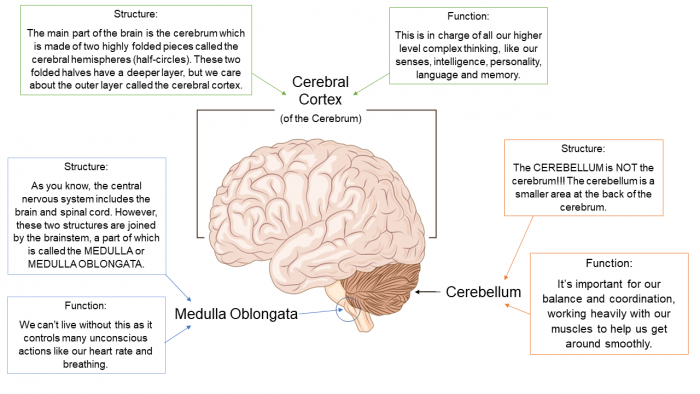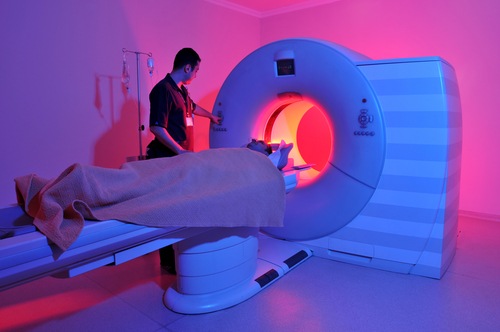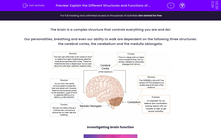The brain is a complex structure that controls everything you are and do!
Our personalities, breathing and even our ability to walk are dependent on the following three structures: the cerebral cortex, the cerebellum and the medulla oblongata.

Investigating brain function

Finding out how our brains work is vital for medicine and neuroscience, and studying brain function has led to some amazing technological advances such as the MRI machine.
This scanner uses strong magnetic fields and radio waves to map which regions of the brain perform certain functions by electrically stimulating patients who have brain damage and seeing which parts of the brain are active during a particular task.
But despite all we've learnt, there are still some large unknowns when it comes to the brain, and as scientists only use ill people in their research, there are some big problems when we investigate how the brain works:
Firstly, people with brain damage don’t live very long.
Also, brain damage from injuries are actually quite rare.
Not all sick people are willing to take part in research which has to have consent.
There are ethical questions about consent too, as if a person has severe brain damage, they will be unable to make a decision alone. This means that it will fall to their distraught families to decide about consent, and so while research can save lives, the moral aspect is very challenging.
Treating brain disease

Treating brain disease is also very challenging.
All treatments of the nervous system, especially operations, are very specialised and not many doctors out there are trained to do these very fragile and detailed procedures.
When you expose the brain, it’s very hard to access all parts of it because of its tightly packed structure, and, of course, any mistakes can make the patient even sicker and could cause irreversible damage to an area that was healthy beforehand.
Now let's move on to some questions.








